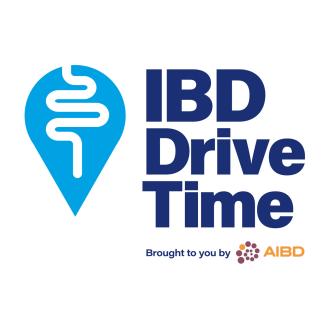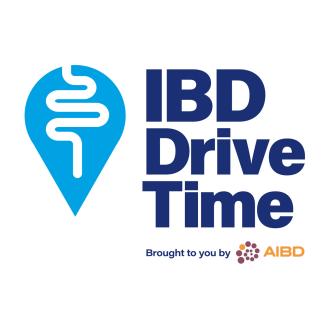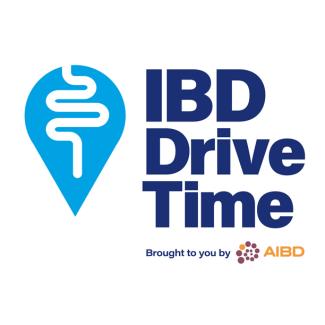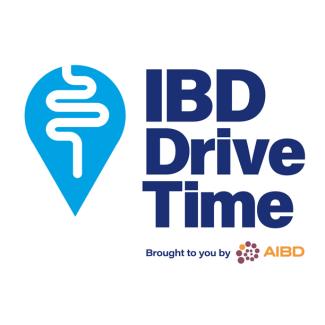The PIANO Global Consensus: Natalie Hayden on the Patient Perspective
Natalie Hayden, who led the Global Patient Ambassador group for the PIANO Global Consensus, relates her own experiences with IBD, pregnancy, and breastfeeding and discusses the particular concerns of women with IBD who want to become pregnant, during their pregnancies, and postpartum.
Natalie Hayden is a former TV news anchor and reporter who was diagnosed with Crohn’s disease in July 2005, two months after graduating from college who now works as patient advocate for patients with inflammatory bowel disease.
Hi, my name is Natalie Hayden. I was diagnosed with Crohn's Disease in July 2005 at age 21, and I am so excited about the Global Consensus Conference and my ability to participate as not only as a mom of 3 children who were all exposed in utero to Humira, but also as somebody who's been there before. I've been in your shoes, I know how scary it is to think about family planning, to talk with your partner about what this means to bring a life into this world when you don't know what your body's going to do. I also want to speak to the physicians about what it means to women out there and their partners when they're trying to have a baby, and how scary and worrisome it can be with so many question marks and so many unknowns that are out there. And speaking of those unknowns, when I had my first child in 2016, there were a lot of question marks.
I got pregnant in 2016. There was so much gray area because there wasn't something like the Global Consensus Conference, which really allows women to have black and white perspective universally, globally around the world so that we know the decisions we are making are backed by research, they're backed by science, and that is the gold standard for pregnancy and family planning. And that was something that did not exist. When I had my son in 2017, I went on to have 3 kids. They're now 8, 6, and 3, soon to be 4. And I think the perspective of where I'm at now, I wish I would've had a magic ball back then because I had bowel resection surgery in 2015 when I was engaged to be married. And that was the first time in 10 years of living with Crohn's disease that I went into remission.
And I was adamant on staying off my medication because I felt so well after I had 18 inches of small intestine removed. But my GI kind of set me back to earth and she said, you must go back on your biologic or your disease is going to get severe again, and you're going to need more surgery in less than 5 years. So through tears and heartache and disappointment, I went back on my Humira leading up to my wedding and I'm so glad that I did because I was able to have 3 flawless pregnancies. I felt like a normal person. I felt healthy and I was well managed and I was well managed because I not only had my gastroenterologist on board, but I had my OB and then I had a maternal-fetal medicine doctor.
And I think so many women that have IBD that maybe feeling well or maybe have mild to more moderate disease activity think, oh, I'm not a high-risk pregnancy, I have this disease under control, I feel well most days. Well, the Global Consensus Conference states that all IBD pregnancies are considered high-risk no matter how severe or how mild your disease is, and that's something to take into account. So it's imperative that women are followed by a maternal-fetal medicine doctor throughout their pregnancy. And what that is, it's basically an OB who specializes in chronic illness. So it really gave me peace of mind as an IBD mom to have monthly ultrasounds despite my babies growing well, because even when we have well-managed disease, we have a lot of possible risk factors that can go into things. So our babies can have low birth weight, they can be delivered early. So we want to really keep tabs on what's going on throughout the pregnancy. And my GI, rather than see me in clinic every 6 months, saw me every 3 months, so each trimester I was going in.
So it's really just having more hands on deck, more people on board to make you feel comfortable with what you're doing along the way. And there's some really great guidance and recommendations from the Global Consensus Conference. I had the honor of being the US Patient Ambassador, so I am the spokesperson for patients in the United States, and I led the other patients from around the world, which was just unbelievable to be a part of. And it's just so exciting on so many levels. I'm so grateful to the physicians who have taken the time to do the research. The PIANO study in and of itself is a miracle for our community. My youngest Connor turned 4 in July, and he's a part of PIANO. So I was a part of this firsthand, and I got to get a C-section and know that my cord blood and his blood and labs and my labs were going to science to make a difference and help pave the way for the future of pregnancy.
And I cannot explain enough how important it is for women to really just go that extra mile and be a part of the science, because think about your daughter down the road when maybe she has IBD, or a family member or a friend, and they're looking for this research and now it is going to be available and it's long-term research. So these babies are not only studied in utero, they're studied all the way to age 18, and there's really not any longitudinal data like that available. So while we may hear that it's safe for babies, oh, they're doing well at 1 year old, well, we're happy to hear that, but we want to know what they're doing when they go off to college. So all 3 of my kids, even though they were exposed to Humira throughout the entire pregnancies, they're all pictures of health, doing phenomenally, and each of them were a part of different pregnancy studies.
So I think beforehand, when you're thinking about becoming a mom, it's important to have preconception counseling. So what does that mean? It means talking to your GI. Maybe you're a new patient with them, or maybe you're thinking down the road of becoming a mom, talking with them about your game plan of your future. So many of us are diagnosed with IBD during our childbearing years or maybe even our teens. So this is something that comes to play for most of us, those of us who want to be a parent. So you want to set that stage. Maybe you're 20 and you say, down the road, I really hope to be a mom. This can guide your medication choices, what therapy your doctor puts you on, how you prep your body for pregnancy. So after my resection, my GI knew that I was getting married. It was the first time I was in remission, and I knew that I wanted to capitalize on that remission because it is recommended for women to be in remission at least 3 to 6 months prior to conception.
So what she did in that moment— my appointment was in November, we had our wedding in June—she put me on a prenatal vitamin. I went on vitamin D, we kept a close tab on all my labs, and then the month before my wedding, we did a colonoscopy to make sure that I had the green light to get pregnant. So we were already kind of setting the stage and preparing me for what was ahead. And I think that made all the difference.
So when it comes to birth control, say that you don't want to get pregnant just yet, or maybe you've had a child and you want to go back on birth control. Something that I think a lot of patients do not know is that they need to be on long-acting reversible contraception over estrogen containing contraception, which can lead to more blood clots. So that's something that I hear from patients quite often. I personally have never been on birth control, but that's something that is important that has come out of the Global Consensus Conference. I think also when you are pregnant, one of your biggest fears is how am I going to monitor my disease activity should I flare? So should I see an exacerbation in disease symptoms, intestinal ultrasound, it's a fantastic noninvasive way. Just like you're getting an ultrasound for your baby, you can get one of your intestines and your gut. So that's a great way with your GI. I know the accessibility is not always easy these days in the United States, but it's something to keep in mind. Ask your GI team if they have anybody that is trained in intestinal ultrasound, and that's something you can do throughout your pregnancy. Fecal calprotectin, of course, giving a stool sample, that's an easy way to monitor those inflammatory markers that are going on while you're pregnant without the contrast, without the gadolinium is recommended over a CT scan.
So that's something to keep in mind. And something that also came out of the global consensus conference that did not exist when I had my 3 kids, even just 3 years ago, was that women should be on low-dose aspirin from weeks 12 to 16 is when it should begin, because that can lower the risk of preeclampsia and preterm preeclampsia. So that's important. I know with IBD women, we are often told no ibuprofenm stay away from NSAIDs. But in this case, that is the recommendation. I think that's something that we are all kind of struggling with understanding, but it is very important. If I were to have a child, I would be doing that moving forward. I'm looking just at my notes here to make sure that I cover all of the important guidance that's going on. It's just so exciting when you are thinking about your medication.
I think one of the key struggles for women is what am I doing to my baby by staying on my medication? I think the riskiest, most worrisome thing is to say, I'm just, I want to just go off all meds for pregnancy and see what happens. You are not only putting yourself at risk, but you're putting your baby at risk. So I think as I gave myself my injection—and trust me, I get it—I remember being 35 weeks pregnant, having a huge belly, seeing that baby kicking while I'm about to do my Humira injection, and feeling kind of that grief and just that burden of, oh my gosh, I can't believe I'm having to do this. And it is sad in the moment, but it also, you need to celebrate the fact that you are doing everything possible to keep your body strong, your disease at bay, and giving your baby the best chance to make it to full term.
Because it's shown through the Global Consensus Conference that by de-escalating therapy or stopping biologics before the third trimester, it leads to more disease flares. And it's one thing to flare when you're not pregnant. It's a whole different ball game when you have a life inside of you and your IBD rears its ugly head. So when it comes to medications, the recommendation is to stay on all therapies except methotrexate and oral small molecules. So we're talking Zeposia, Velsipity, Xeljanz, Rinvoq, those S1Ps, those JAK inhibitors. Now, I will say that the Global Consensus Conference said, say you've exhausted all therapy options and these are the only options for you to stay on Rinvoq in pregnancy. That is an option, but it's something that has to be discussed closely with your provider and a decision with yourself to say, what are the risks and benefits of this decision?
And that's something that is part of the PIANO study, is they are monitoring all these different medications and therapies and showing how are babies thriving, how are moms doing? What is the science behind this? So all of the work in the PIANO study is just life-changing for all of us when it comes to breastfeeding. I think this is another big struggle so many women, whether you have IBD or not, face. It is truly a labor of love. And I'm kind of interested when it comes to breastfeeding because with my oldest, I was not a patient advocate yet in the IBD community, and I was not well versed on what it was like to be pregnant with Humira and then breastfeeding on Humira. So I only breastfed my son 3 days, and then I switched him to formula because I was nervous about what that could do for him.
Well, I came to learn more and get educated and see the research behind breastfeeding and that it is not associated with increased risk of disease excerbation, and there's no increased risk of infection for babies born to moms on anti-TNFs. And I said, you know what, with my second, I ended up breastfeeding her 6 months until my supply ran out. And then we switched to formula and with my youngest get this, he was breastfed exclusively for 14 months. I don't even think he had 2 ounces of formula. So whether you feed your baby with formula or a mix of both formula and breast milk or just breast milk, fed is best. Don't put too much pressure on yourself. I know that it's heavy. I know that it's a lot. Part of the reason I didn't breastfeed my oldest was because I was worried about a postpartum flare, and I thought to myself, I don't want to be connected to my son with my body anymore, and I want him to have that freedom and that safety.
But with my youngest, it just felt right. And we had a great journey together, and all 3 of them, as I said, are doing beautifully. I think something you need to consider too about staying on your medication, that is that if you flare, we are already going to be at risk of low birth weight, NICU stays, preterm delivery, blood clots, and spontaneous abortion with active disease. So those are all very heavy, very serious situations when you're pregnant and nothing that you want your child or you to have to go through as far as delivery. This is also a big topic of discussion among patients. I had 3 scheduled C-sections for all of my children, and I do not have perianal disease. I do not have a J pouch. I don't really have the risk factors that make you eligible for discussion to have a scheduled C-section.
But what I really appreciated was that my maternal-fetal medicine doctor spoke with me and he gave me the option, what do you feel most comfortable with when it comes to delivery? And I personally chose a scheduled C-section. I was nervous about tearing, getting a fistula, having issues going to the bathroom. To me, it just felt like the safest and most easy option, if you want to call it easy. I had already had abdominal surgery, and I can tell you that a C-section is a walk in the park compared to a bowel resection. So that was definitely, it set the bar for me leading up to that. But generally, women can have vaginal deliveries with IBD unless you have active perianal disease, a prior ileal pouch anal anastomosis. So that is something to discuss and be confident with your decision. So if you have perianal disease, it's a no-brainer, you're going to want to have a scheduled C-section. And I will say that they did my C-sections right on my bowel resection incision, so all of my incisions were done on the same incision. There was no issue with scarring or anything like that internally with scar tissue. Everything went beautifully. And if I had to do it again, I would do the exact same thing. I think just having that peace of mind for me living with IBD, there's so many question marks, so many unknowns. I like to be in control on this one, and all of my babies followed their schedules. Not one came early. I never had one contraction, and I'm blessed for that, but it felt like I could finally be in the driver's seat with my health and what I was doing with myself and with my baby. So that was my personal decision, and it's a decision you can have with your own provider, but that's something to keep in mind.
And I know women have a lot of questions and worries about delivery as far as postpartum. It's important to stay on those medications because our hormones crash crazy amounts when we have the baby. Our bodies change almost immediately, even though I felt fantastic in pregnancy and within deep remission, I will say almost within 10 hours of my C-sections, I was not flaring, but I had that reminiscent kind of gnawing feeling in my abdomen. And it was sad for me because I felt like I was a healthy, normal person while I was pregnant. And it was a quick reminder that yes, you have Crohn's disease and yes, you need to be medicated for this, so you want to stay on top of that. Stay on your medication. I know women's health especially go to the bottom of the totem pole when we're taking care of our newborn and taking care of our family. Maybe you have little ones running around at home and you can think, oh, I don't have time to get my infusion this week, or maybe I just don't have the bandwidth to do my injection. You must make your health a priority for your family.
And I think, to all the physicians there, please be patient with women. Understand the mental aspect, the emotional aspect, that goes into this for us. We already carry so much mom guilt as it is with our chronic illness, and maybe not being up to par with what we think motherhood should be or how it should look. And going into this can be very scary. This might not be your first rodeo. Maybe you've had 500 patients deliver healthy babies, but for the women that you are seeing, please understand, this could be her very first pregnancy. This could be her third pregnancy.
Maybe she's had some miscarriages along the way. So handle us with kind of kid gloves. And if you could, just some patience, some empathy. Act as if we are your daughter or we're your niece or somebody you really care about and be patient with us. Understand that we're not asking these questions because we're trying to be annoying. We just want to get a better read of what's going on. And talk about the Global Consensus Conference with your patients and the findings that came out of it, and the research out there. Because a woman wants the numbers, we want to know, where did you hear this from? What's the study? What does it show? How many people were studied? We want that science. So if you can provide that data to your patients, I think that it will just work wonders with everybody involved and everyone can be on the same page, and they'll feel more comfortable in those decisions that may be difficult along the way.
Another big area of discussion is vaccinations. As a patient advocate, I hear this all the time; things have changed. My youngest was born in 2021. Back then we were not giving rotavirus because it's a live vaccine. And he was exposed of course in utero to anti-TNF, to Humira. Well, now the recommendation is that live rotavirus is given to children in utero that were exposed to biologics. So if your doctor talks to you about rotavirus, you can say that you know that there has been recent studies out there that as of May 2024 that have said that babies can receive live rotavirus and all inactive vaccines can be given right on schedule, whether your baby was exposed to biologics or not in utero. Live vaccines can also be given to infants of mothers breastfeeding while on biologics. I remember when I was going through that and my son was getting his MMR, I was wondering, is this safe for me to be near him because I'm on Humira and I'm immune compromised. And the pediatrician really didn't know, and she told me to check with my GI. But the global consensus says that it is safe for us to be near our children when they have these vaccines.
Lastly, I just want to implore all of you to know that you are not alone in this journey. There are so many IBD moms out there who live this reality. We understand what it's like to be in your shoes. And I think that being an IBD mom is so powerful. It's a badge of honor because it shows all what our bodies are capable of, and we all really need to work together as a community to be supportive of one another, and really use this research to drive just more community and less women trying to decide whether they should be a mom or not because of their IBD. And it's really heartbreaking the amount of women who choose not to be mothers because they just don't have this access to the information. So share it wide, talk about it, ask your doctor about it. Do not be scared. And I just thank each and every researcher, every GI, every person who is a part of theGlobal Consensus Conference for creating this for our community and creating the PIANO study, which is truly life-changing for all of us.




















